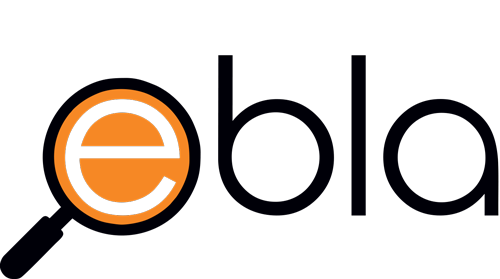In today’s competitive job market, standing out from the crowd is essential for landing your dream job. While having the right skills and experience is crucial, it’s equally important to effectively communicate your unique value proposition to potential employers. This is where personal branding comes into play. Personal branding is the process of defining and promoting yourself as a brand, highlighting your skills, expertise, and unique qualities to differentiate yourself from other candidates. In this article, we’ll explore the power of personal branding in your job search and provide actionable tips for building and leveraging your personal brand effectively.
Why Personal Branding Matters
Personal branding has become increasingly important in the job search process for several reasons:
- Differentiation: In a crowded job market, employers are inundated with resumes and applications from countless candidates with similar qualifications. Personal branding allows you to differentiate yourself by showcasing your unique strengths, experiences, and personality traits.
- Visibility: A strong personal brand increases your visibility and presence in the job market, making it easier for employers to find and notice you. By effectively promoting your brand across various platforms and channels, you can attract the attention of hiring managers and recruiters.
- Credibility: A well-established personal brand can enhance your credibility and reputation in your industry or field of expertise. When employers recognize you as a thought leader or expert in your field, they are more likely to trust your abilities and consider you for job opportunities.
- Networking Opportunities: Personal branding can also open doors to valuable networking opportunities, allowing you to connect with industry professionals, mentors, and potential employers. By building relationships with key individuals in your industry, you can gain insights, advice, and referrals that can help advance your career.
Key Components of Personal Branding
Effective personal branding encompasses several key components:
- Self-Reflection: The first step in personal branding is to conduct a thorough self-assessment to identify your strengths, skills, values, and unique qualities. Reflect on your professional experiences, achievements, and career goals to determine what sets you apart from others.
- Brand Identity: Define your brand identity by articulating your unique value proposition and positioning yourself in the market. Consider what you want to be known for and how you want to be perceived by employers, colleagues, and industry peers.
- Consistency: Consistency is essential for building a strong personal brand. Ensure that your brand messaging, visual identity, and online presence are consistent across all platforms and channels, including your resume, social media profiles, personal website, and professional networking sites.
- Online Presence: Your online presence plays a significant role in shaping your personal brand. Optimize your LinkedIn profile with relevant keywords, a professional photo, and a compelling headline. Additionally, consider creating a personal website or blog to showcase your portfolio, projects, and thought leadership content.
- Networking: Networking is a critical aspect of personal branding. Engage with industry professionals, attend networking events, and participate in online communities relevant to your field. Build genuine relationships with others and offer value by sharing insights, resources, and expertise.
Strategies for Building Your Personal Brand
- Define Your Brand Story: Craft a compelling narrative that communicates who you are, what you stand for, and what you bring to the table. Your brand story should resonate with your target audience and highlight your unique experiences, passions, and achievements.
- Identify Your Target Audience: Determine who your target audience is—whether it’s potential employers, industry peers, or clients—and tailor your brand messaging and communication strategies to resonate with their needs and interests.
- Develop Thought Leadership Content: Establish yourself as a thought leader in your industry by creating and sharing valuable content that showcases your expertise and insights. This could include articles, blog posts, whitepapers, case studies, or videos on topics relevant to your field.
- Engage on Social Media: Leverage social media platforms such as LinkedIn, Twitter, and Facebook to amplify your personal brand and connect with your target audience. Share relevant content, participate in industry discussions, and engage with influencers and thought leaders in your field.
- Seek Feedback and Iterate: Solicit feedback from colleagues, mentors, and peers on your personal brand and online presence. Use this feedback to refine and iterate your brand messaging, visual identity, and content strategy to better align with your goals and audience.
Case Study: The Power of Personal Branding in Action
Consider the example of Sarah, a marketing professional looking to advance her career in the tech industry. Sarah decides to focus on building her personal brand to increase her visibility and credibility in the industry. She starts by defining her brand identity as a strategic marketing expert with a passion for innovation and technology.
Sarah creates a professional LinkedIn profile that showcases her skills, experiences, and achievements in the marketing field. She shares thought leadership content on topics such as digital marketing trends, customer engagement strategies, and data analytics. Sarah actively engages with industry peers, participates in relevant LinkedIn groups, and attends networking events to expand her professional network.
As a result of her efforts, Sarah begins to attract attention from recruiters and hiring managers in the tech industry. She receives invitations to speak at industry conferences, contribute guest articles to prominent marketing publications, and participate in panel discussions on emerging trends in digital marketing. Sarah’s personal brand becomes synonymous with expertise, innovation, and leadership in the tech marketing space, opening doors to exciting career opportunities and professional growth.
Conclusion
Personal branding is a powerful tool for advancing your career and achieving your professional goals. By defining your unique value proposition, establishing a strong online presence, and consistently communicating your brand message, you can differentiate yourself from the competition and attract the attention of potential employers and industry influencers. Invest time and effort in building your personal brand, and reap the rewards of increased visibility, credibility, and networking opportunities in your job search journey.

